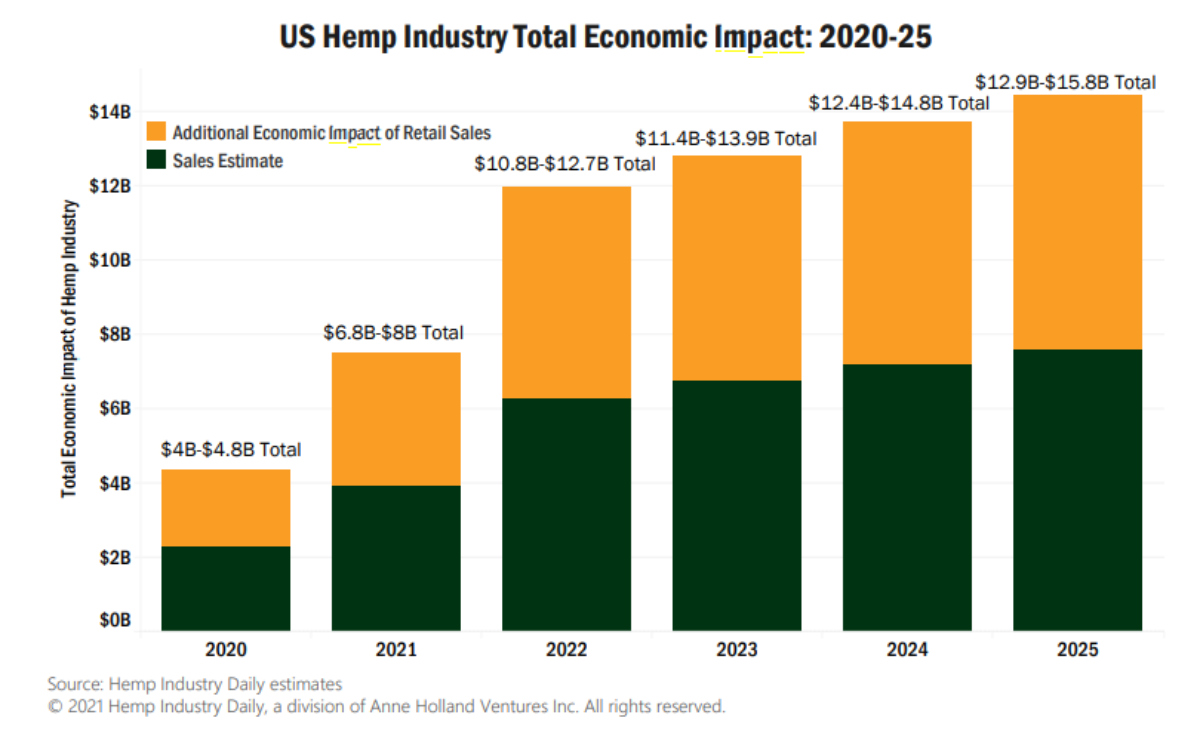The hemp industry may be young, but the niche crop still contributed at least $4 billion to the U.S. economy last year and could contribute nearly $16 billion by 2025.
That’s the projection from the new 2021 Hemp & CBD Factbook, an exclusive overview of the hemp market that includes key metrics businesses need to navigate this emerging industry.
Based on the latest data collected from similar industries, Hemp Industry Daily set the standard multiplier for hemp at 1.9.
This means that for every $10 that consumers and patients spend on hemp products, an additional $9 will be injected into the economy, much of it at the local level.
Some examples of the industry’s economic impact include:
- Meeting workers’ day-to-day needs such as housing, transportation, food, clothing and entertainment, which injects capital into a variety of local businesses.
- State and local taxes that are used to fund government activity such as schools and road repairs.
- Increased demand for products and services from ancillary businesses – those not involved directly in the production and sale of hemp, such as HVAC providers or transporters.
Based on this metric, as sales increase, the hemp industry had an economic impact of $4 billion to $4.8 billion in the United States in 2020 and up to $15.8 billion in 2025.
For more exclusive data on the emerging hemp market, check out the 2021 Hemp & CBD Industry Factbook, available here.


